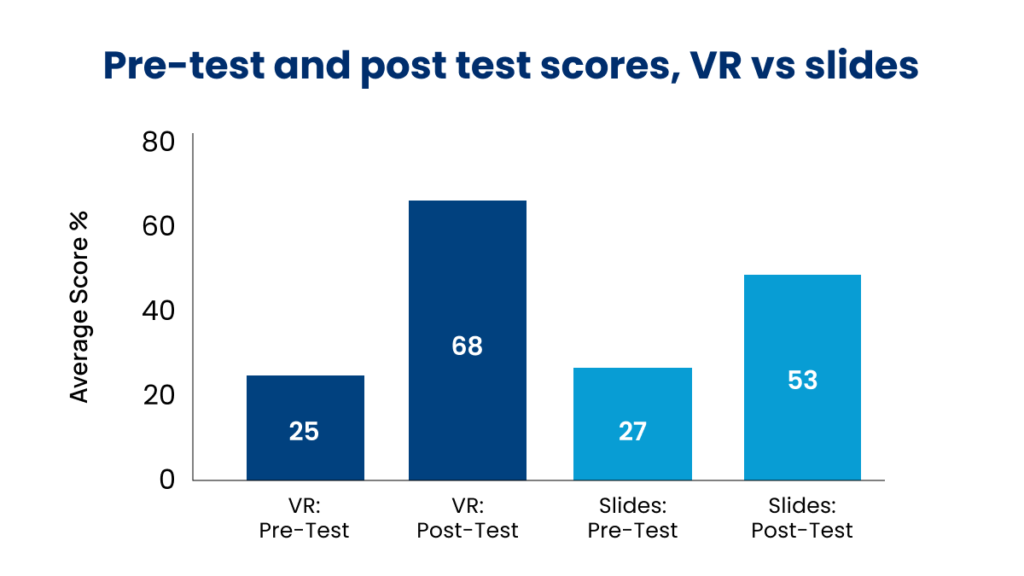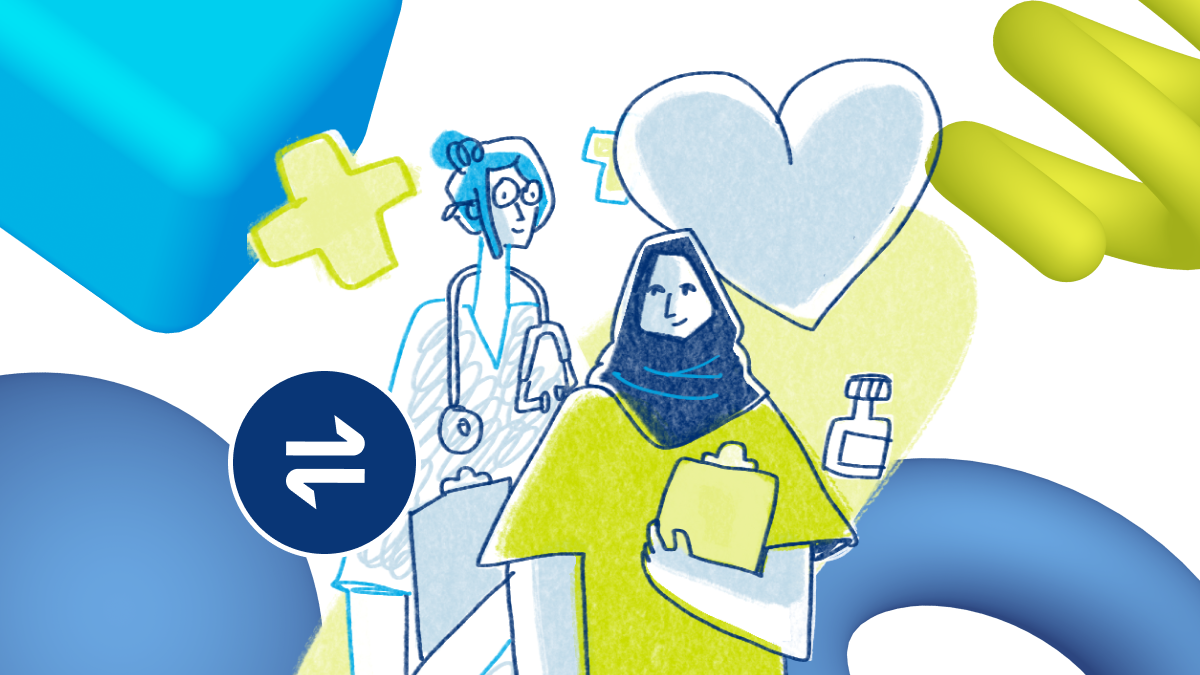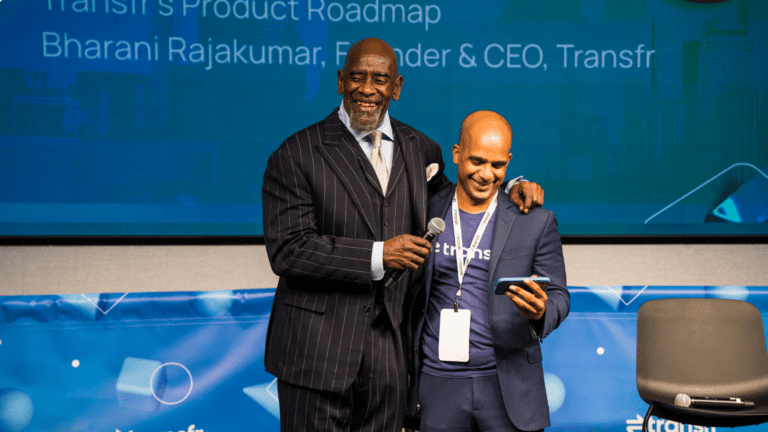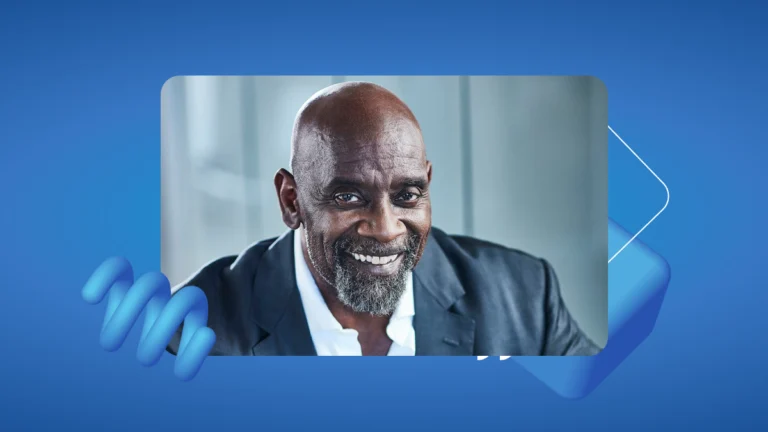Healthcare education is constantly evolving, especially as the evidence of new effective and innovative educational strategies arises. More and more healthcare programs and educators are waking up to the potential of virtual reality (VR) career exploration and training to revolutionize health sciences programs of all kinds. Equipped with this innovative technology, healthcare education programs can boost instructor bandwidth and increase their ability to develop well-trained individuals for healthcare recruiting pipelines.
VR healthcare career exploration simulations give prospective healthcare professionals a look into the day-in-the-life activities of well-paying, high-demand careers, helping them make informed decisions before getting on a healthcare career training pathway. Once accepted into a health sciences training program, VR simulations can help individuals safely practice core skills in a risk-free, immersive environment, where a virtual coach provides immediate feedback based on their in-sim actions.
That’s why we’re so excited to announce our partnership with HOSA — the organization that empowers Future Health Professionals. Building the most robust VR health sciences simulations possible (led by a team of Certified Healthcare Simulation Educators guided by the Healthcare Simulation Standards of Best Practice™ recommended by INACSL) is all about helping more people find their own unique pathway to career success, and the support of organizations like HOSA helps reinforce that mission and bring us all closer to our shared goal of building the next generation of healthcare professionals.
Exciting VR efficacy research results
For an example of why VR health sciences training is so exciting, consider a recent efficacy study conducted by the Transfr Learning Intelligence team. The study compared immersive virtual reality (VR) health sciences training to traditional slide deck training and showed significant learning gains when using VR for healthcare skills training.
In the study, participants learned how to obtain a blood pressure measurement — some via immersive VR training, some via reading information contained in a slide deck. The results were outstanding: The VR group demonstrated significantly higher learning gains evaluated by pre- and post-test scores. This underscores the power of VR technology in creating engaging and impactful learning experiences.

The anonymous study participants were also very excited about learning via health sciences VR simulations and had the following to say about the experience:
“I really, really like the simulation, honestly. I’m a VR student. I’ve tried many games, many simulations. I’ve tried medical simulations… that weren’t as easy to use as this one”
“I really do like the noises in the background. It kind of makes it feel more realistic… I think this is more engaging than watching a YouTube video.”
Partnering with HOSA to revolutionize health sciences education
As partners of HOSA, Transfr is committed to helping advance healthcare education. VR training can be a unique and effective way to enhance student skills and knowledge in various healthcare fields. The immersive nature of VR allows for realistic simulations, interactive scenarios, and practical experiences that closely mimic real-world healthcare environments. Additionally, this type of training has the potential to improve critical thinking, decision-making, and overall proficiency in our future health professionals.
As a company committed to empowering future health professionals, we’re also actively exploring opportunities to incorporate immersive VR training into programs, institutions, events, and competitions. By helping programs and organizations embrace and successfully implement these innovative technologies, we aim to revolutionize healthcare education and prepare individuals for success in their chosen health professions.
Our endorsement by the NCHSE and our partnership with HOSA only underscore this commitment. As Cindy LeCoq, NCHSE Certificate Program Manager, puts it:
“After personally engaging in Transfr’s virtual simulation series, I am excited to celebrate the new dimension this resource brings to today’s CTE classroom, particularly in the health science sphere.”
Stay tuned for more updates and announcements as we progress on this exciting journey. We are committed to providing high-quality resources and solutions to support individuals interested in pursuing healthcare careers. (If you have any questions or want to learn more about immersive VR healthcare training, please get in touch! Your feedback and suggestions would be invaluable.)
“The future of healthcare education is immersive, engaging, and accessible to all aspiring health professionals,” says Hannah Schroeder, MSN-Ed, RN, CNE, CHSE, PCCN, Sr. Manager of Health Science Content Strategy & Programs at Transfr. “Our partnership with HOSA represents a commitment to empowering the next generation with cutting-edge VR training that will shape the future of patient care. By bringing the power of immersive virtual reality to future health professionals, we’re unlocking new levels of engagement, skill development, and career preparation that will undoubtedly shape the future of the industry.”





